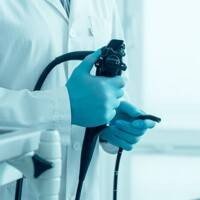Gastroesophageal reflux disease (GERD) occurs when stomach acid abnormally flows back into the esophagus, leading to various symptoms and complications. There are several methods for diagnosing GERD:
- Proton Pump Inhibitor (PPI) Trial: A PPI trial involves administering medication that effectively suppresses gastric acid secretion. If a patient's symptoms improve after using the medication for four to eight weeks, it suggests they may have GERD. The accuracy of this test is around 80%. If symptoms persist, further investigation is needed to rule out other causes.
- Endoscopy: Endoscopy is primarily used to identify esophagitis caused by acid reflux and to check for complications. However, some patients with GERD may show no abnormalities during an endoscopy, so additional tests are often required to confirm the diagnosis.
- Esophageal pH Monitoring: This method involves attaching a pH monitoring device to the esophageal lining via endoscopy. It continuously records the acidity levels in the esophagus over a flexible time frame of 24 to 96 hours. This comprehensive monitoring helps doctors diagnose GERD more accurately without significantly affecting the patient's daily life, as the device transmits data wirelessly to an external receiver.
Doctors typically combine these diagnostic methods to accurately assess whether a patient has GERD and to evaluate treatment efficacy.
Treatment
If the patient’s inflammation is not too severe, we recommend that the patient take medication and make changes to their lifestyle to control and relieve the condition.
|
Medication
|
Asides from using proton pump inhibitors, doctors may also arrange for the patient to take drugs that neutralizes gastric acid and reduces it’s “aggressiveness”. There are also drugs that can add a protective layer to the esophagus, increasing it’s “defenses” to avoid further damage.
|
|
Surgery
|
If the esophagus is seriously damaged from acid reflux, or part of the stomach bulges through the diaphragm causing a hiatal hernia, the doctor may recommend the patient undergo minimally invasive fundoplication to increase pressure in the esophagus and reduce acid reflux.
|

















